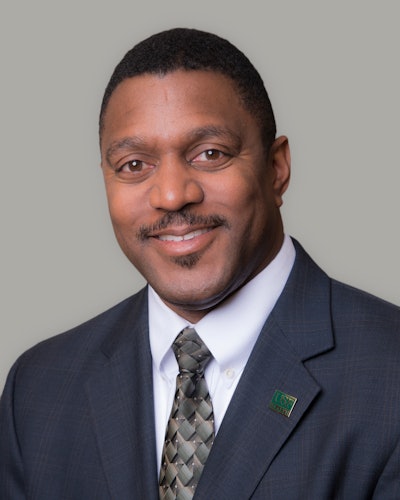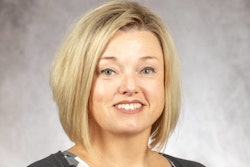Last summer, as SARS-CoV-2 Delta variant cases rose significantly in Florida, I stopped at a barber shop not far from campus. The barber is a friend of mine who had participated in previous National Institutes of Health (NIH)-level community projects with our researchers at the University of South Florida (USF). Soon we were talking about spreading the word about the vaccines among members of Tampa’s diverse communities, where skepticism rooted in decades of distrust in public health remained high.
A customer listening from a nearby barber chair nodded. I asked if he planned to be vaccinated.
“Nah,” he said. “I’ve had COVID twice. I keep amoxicillin in my pocket, and that takes care of it.”
Unfortunately, this isn’t an isolated occurrence – even now, nearly two years into the pandemic.  Dr. Kevin B. Sneed
Dr. Kevin B. Sneed
Among diverse populations and throughout underrepresented communities, hesitancy remains around the safety and effectiveness of public health initiatives. Some of this can be traced to damage done by the federally funded Tuskegee syphilis study, in which Black sharecroppers were deceived and left untreated for 40 years, leading to more than 100 deaths.
Such distrust can become generational. Many young people today may not be fully aware of the Tuskegee study, and yet the mistrust it created has permeated their generation. It is not easily overcome but rebuilding that trust has never been more critical.
While minority vaccine uptake has improved in recent months, it still trails that of white persons in many areas of the country. According to reporting through Nov. 29 compiled by the Kaiser Family Foundation using CDC data, Black vaccination rates trailed white vaccination rates in 34 states, and Hispanic rates trailed white rates in 26 states.
These disparities have been costly. Black persons are 2.6 times more likely than white persons to be hospitalized with COVID, and nearly twice as likely to die, according to CDC data through Nov. 22. Hispanic persons are 2.6 times more likely than white persons to require hospitalization and 2.1 times more likely to die. Clearly, there is still work to be done.
Work of this kind is seldom best accomplished through broad government messaging or media reports. It requires a boots-on-the-ground approach that begins by earning the trust of leaders within these communities: clergy, those who run nonprofits and small-business owners like those found in barber shops and hair salons, who often develop longstanding and trusted relationships with their congregations and clients.
This is the kind of important outreach we had in mind in 2014, when I re-established the Workgroup to Enhance Community Advocacy and Research Engagement (WE-CARE). WE-CARE is a community-based participatory research program started from an NIH grant that relies on volunteers, in-kind hours and community partners to work toward achieving health equity in diverse communities.
Partnerships between academia and community groups enable us to reach deep into diverse populations to meet people where they are. When we initially approached clergy, many were skeptical. But an authentic, caring approach helped us connect with their congregations. We helped them recognize sources of credible guidance, and hopefully now they will be less susceptible to misinformation.
We have worked with countless churches, nonprofits and businesses statewide and nationally throughout the pandemic. We’ve hosted more than 100 virtual webinars, enabling us to speak directly with individuals, address their concerns and answer questions about vaccines and COVID treatment.
In the process, these initiatives have become sustainable, allowing us to extend the impact of the original NIH grant and underscoring the importance of community outreach by academic institutions at a time when accurate information can literally save lives.
The most important ingredient to success is our partnership with Tampa-based REACHUP, Inc., whose primary focus is achieving health equity and generating sustainable resources to improve the overall health of families. REACHUP is a credible voice in the community, and WE-CARE is effective because of REACHUP’s local and national presence and reputation.
These efforts are time-consuming and labor-intensive. However, we know their impact can span decades by informing and educating individuals living today and those who will be affected by future public health crises as well as incidences of chronic disease. Building trust in our public health institutions among underrepresented populations is an important step toward empowering these communities and removing disparities that create a lack of access to quality health care, food, education and other vital services.
Soon, we will expand our community outreach through transformational pilot projects that will make it easier for us to reach people where they reside. The goal is to increase our efforts to deliver essential, accurate information and resources to those who most need it. Through projects like this, the seeds of trust sown during the pandemic will provide these vulnerable communities with life-saving fruit for years to come.
Dr. Kevin B. Sneed is the founding dean of the University of South Florida Taneja College of Pharmacy and Senior Associate Vice President for USF Health.









